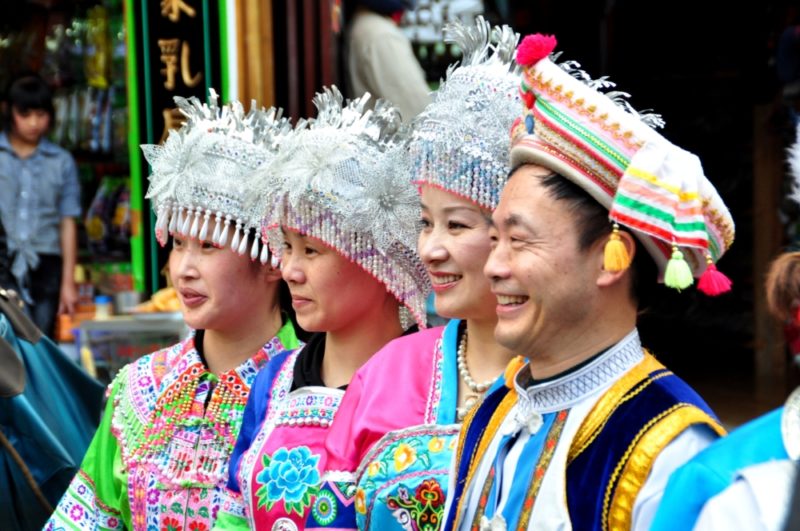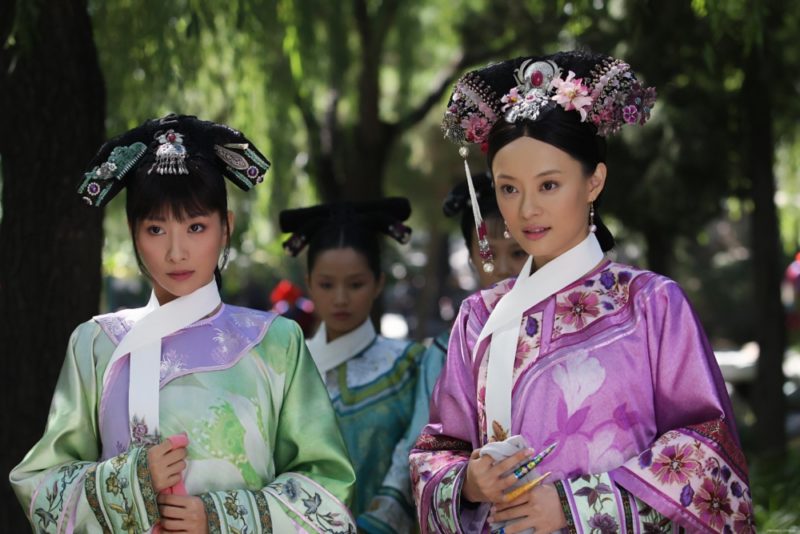Modern Chinese surnames have a different origin. They are a stable part of the name and do not undergo changes throughout their lives. We learn which of them are considered the most common and beautiful.
Material Content:
Analysis of the origin and meaning of Chinese surnames
The Chinese have adapted to use surnames before the New Era. Then they were worn only by members of the royal dynasty and the aristocracy. Later, ordinary residents began to use the surname along with the name. Initially, the generic name had two meanings - Shi and Sin.
Today in Chinese there are more than 700 surnames. Only 20 of them are widely popular. This is because the name plays the greatest role. There are many personal names in China, and people with the same surname are not necessarily relatives. However, until 1911, marriages with namesakes were prohibited.
In antiquity, there were two kinds of surnames:
- clan name;
- directly surname.
After the rule of the Han Dynasty, the distinction between these types disappeared.
The formation of a hereditary generic name depended on several factors.
Among them:
- membership of the royal family;
- residence in a particular state;
- name of feudal possession (Chen, Dream);
- name of the ancestor;
- profession or nickname (Sym - Minister of War, Wu - medicine man, Tao - potter);
- ethnic group.
Values of family names do not depend on the number of syllables in a word. Almost all of them are displayed on paper with one character. The inhabitants of the Celestial Empire today with honor and dignity relate to their generic name.
It is worth considering that in China there are many dialects.The same name sometimes sounds differently. Translation into another language can completely change the meaning. In any case, Chinese surnames and their meanings are closely related. No wonder they became a real literacy tool.
Beautiful surnames for girls
It is started so that at the very beginning they write the name, and only then the name. In this case, two-syllable words are displayed together. Previously, they were separated by a hyphen. Feminine names are not inclined.
For the fair sex, the following surnames sound beautiful:
- Xue;
- Dean;
- Luy;
- Yuan;
- Zi
- Feng
- Liang;
- Tench;
- Liu.
The bride in China after marriage does not accept the name of the spouse, but leaves her own. With children, the situation is the opposite, as in Russia. It happens that the name of the husband is inserted in front of his. In any case, the name characterizes the fair sex as a gentle creature, and the surname speaks of her belonging to a particular genus.
Male list in Russian and English
Chinese surnames are limited by the list of special characters "Baijasin."
Here are the male options in Russian and English:
| Russian pronunciation | English spelling |
|---|---|
| Lee | Li |
| Zhang | Zhang |
| Zhou | Zhou |
| At | Wu |
| Shi | Shi |
| Sun | Sun |
| Hu | Hu |
| Tench | Lin |
| Ma | Ma |
| Lo | Luo |
| Han | Xan |
| Xiao | Xiao |
| Yu | Yu |
Male Chinese surnames are inclined in Russian if they end in a consonant. This rule applies only if the full name is not used. For example, you should say: "I saw Kim," "I invited Kim Il Sung."
The most popular and common options
According to global statistics, there are about one and a half billion Chinese.
Approximately 300 million bear one of the following names:
- Lee Translated into Russian as "plum". Its famous representatives are Bruce Lee, Jet Li.
- Wang. Designates in Chinese “prince”, “ruler”. The clan comes from the principalities of China and Korea that existed in ancient times and the Middle Ages. This is the designation of the title of rulers. There is another homonymous version of the word, which means "pond" and pronounced with a different key.
- Zhang. Translated means “open”, “icon”. Approximately 70 million people are carriers of the Zhang surname. This number exceeds the population of Spain.
In the Middle Kingdom there is the expression “two Zhangs,” “three Lee,” which means “any.” The generic names Nguyen, Chen, Liu, Chen, Yang, Zhao, Wu, Xu and Sun are considered quite common.
In general, surnames are distributed unevenly throughout China. In the south live the clans of Chen, Huang, Lin. The surname Liu is common on the Yangtze River.
Rare Chinese surnames
The following Chinese surnames are quite rare:
- Sing
- Us;
- Ko;
- Feces;
- Nwe.
About 20 generic names have two syllables - Ouyang, Syma. Sometimes you can find the adverbs of the three syllables. This surname is of Manchu origin. Some personal data seems bizarre to other nations. Found in China Sun Wyn, Rui Sam, Rise Sun.
In ancient times, the syllables "meng", "chong", "shu" and "ji" denoted each of the four children. Later they became surnames, but are quite rare. Meng is the most common of them.
Most Chinese surnames have been known for over two thousand years. Therefore, hereditary names are especially respected. The inhabitants of the Middle Kingdom are proud of them and know the history of a kind. For them, the surname is a symbol of the family.














